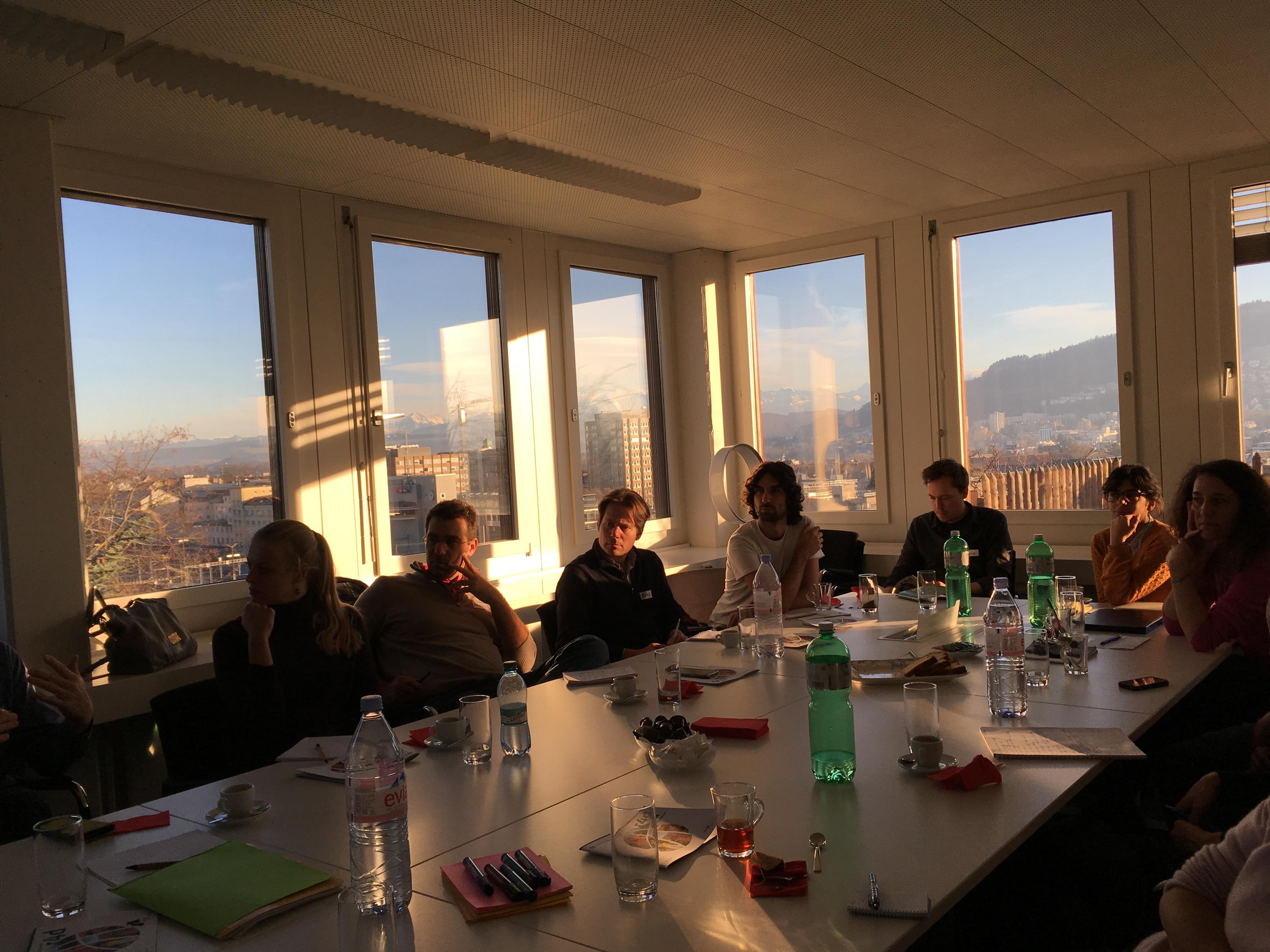Second r4d Skills Coordinators’ exchange meeting

Managing interdisciplinary and multinational research projects and interacting with stakeholders throughout the research process is challenging. The r4d programme regularly offers a platform for exchange for r4d project leaders and coordinators.
The second r4d Skills Coordinators’ Exchange meeting was attended by 14 researchers of the r4d programme. The agenda of the meeting was established together, covering the expectations of the participants. They discussed together the following issues:
- Safety and risk management during the research process both for researchers and informants: Many universities and research institutes have issued regulations on safety and risk which they are willing to share upon request. Some institutes do only allow their researchers to go to the field when they pass a test such as the one provided by United Nations Department of Safety and Security ( UNDSS test ). Others follow a specific protocol to prepare and debrief. Strategies are also developed within individual projects, especially those with highly sensitive data. They include a common understanding, such as developed in a project charter, and standardised processes and protocol as well as technical support such as encrypted hard disks and safe data storage. Institutions such as FORS provide advisory as well as data storage services for research teams working on and in sensitive areas. For shorter or longer stays, the r4d programme recommends to make use of the smartphone App itineris of the Swiss Federal Department of Foreign Affairs.
- Communication : Communication in large teams is a continuous challenge. An increasing number of communication tools next to skype calls can support communication efficiency and effectiveness. However, regular meetings and team building moments are ctrucial to build trust as well as ownership (or project identity) in highly complex research projects.
- Organisational set-up of r4d research projects: Drawing on two examples, the participants discussed the organisational set-up of transnational research partnerships. There is not “a one fits all recipe” but an openness to learn from different approaches, reflecting different ambitions of teams and topics. The r4d programme builds on efforts of joint leadership and the distribution of responsibilities and tasks of complementary partners.
- Coordinators as researchers : The double role of research coordinators and early stage researchers is a recurrent theme that the postdocs of the r4d projects regularly address and exchange on. They share and reflect openly about their challenges as well as the risks and benefits of assuming key positions in the projects. The collegial coaching resulted in advices such as writing retreats, clarification of roles and responsibilities, as well as regular and open exchanges with the project leaders on daily routines as well as career steps.
The r4d programme will host in 2017 again one to two coordinators’ exchange meetings.
